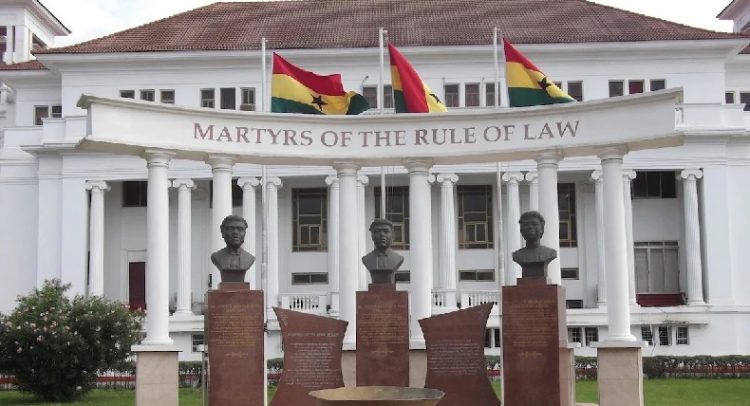The Supreme Court has dismissed a case filed by the Ghana Independent Broadcasters Association (GIBA) against the National Communications Authority (NCA) and the Attorney General’s Department over access to free-to-air TV broadcast.
According the court, GIBA failed to disclose any breach of the free press in their writ.
The seven-member panel of the court in a unanimous decision held that the plaintiff’s writ was anticipating a possible breach of the right and freedom of the press which is something the court cannot uphold.
The court also held that GIBA did not properly invoke the jurisdiction of the court.
The panel was presided over by Chief Justice Kwasi Anin-Yeboah, and assisted by Justices Jones Dotse, Sule Gbadegbe, Samuel Marful-Sau, Nene Amegatcher, Prof. Nii Ashie Kotei, and Mariama Owusu
GIBA sued the NCA and the AG’s Department over what it claims to be a breach of the right to free press following the introduction of conditional access to free-to-air TV broadcast by the regulator.
According to GIBA, this breaches the tenets of press freedom as enshrined in the 1992 Constitution.
The association also contended that Conditional Access System (CAS) introduced as a mandatory requirement by the NCA by which media content of free-to-air broadcasters are blocked by the government unless certain criteria have been met constitutes an unnecessary restraint on the establishment and operation of private media as enshrined in Article 162(3) of the 1992 Constitution.
It was therefore, seeking a declaration that the blockage of media content of free-to-air broadcasters through the use of the CAS introduced by the NCA is unconstitutional as same constitutes an unreasonable and unnecessary abridgement of the freedom of the media contained in Article 21(a) and 162 (1) of the 1992 Constitution.
Another relief also sought a declaration that the blockage of media content of free-to-air broadcasters through the use of the CAS introduced by the NCA, contravenes the spirit and letter of Article 21(f) of the 1992 Constitution since same constitutes an unnecessary abridgement of the right to information guaranteed under the Constitution.
Besides, GIBA was seeking an order directed at the NCA to remove from the Minimum Requirements for Reception of Digital Terrestrial and Satellite Television Services any system in the nature of conditional access that encrypts or blocks the content of free-to-air television channels from being received.
BY Gibril Abdul Razak


